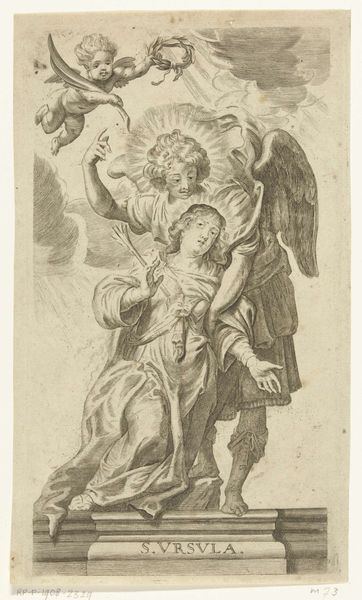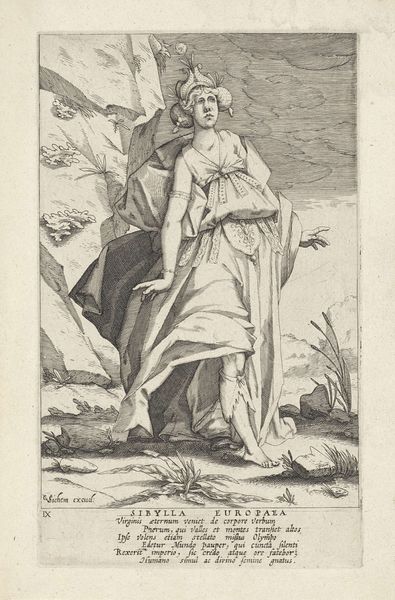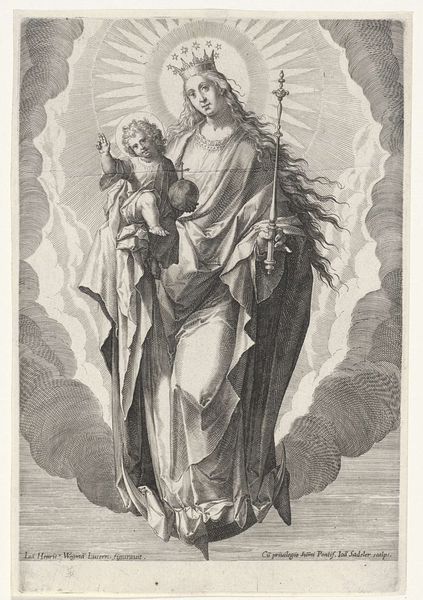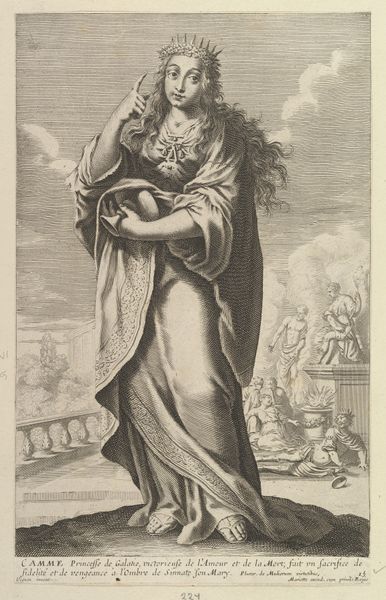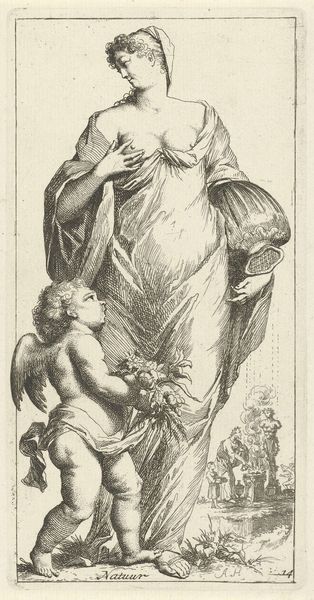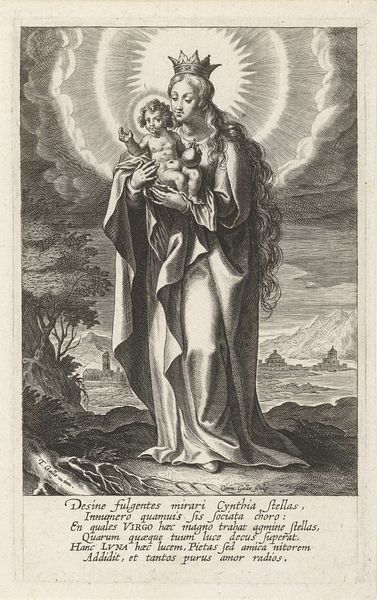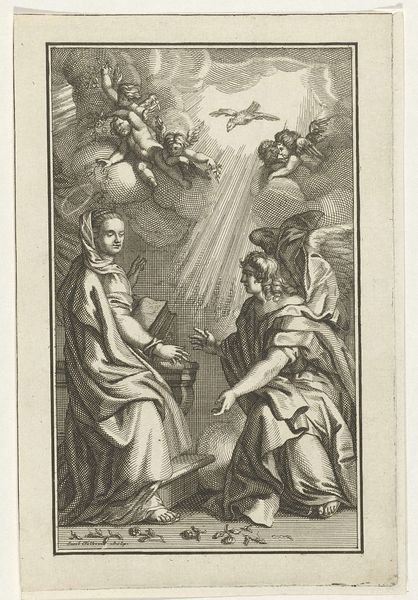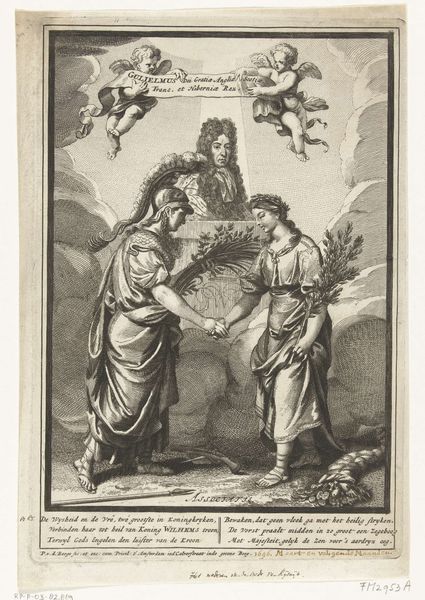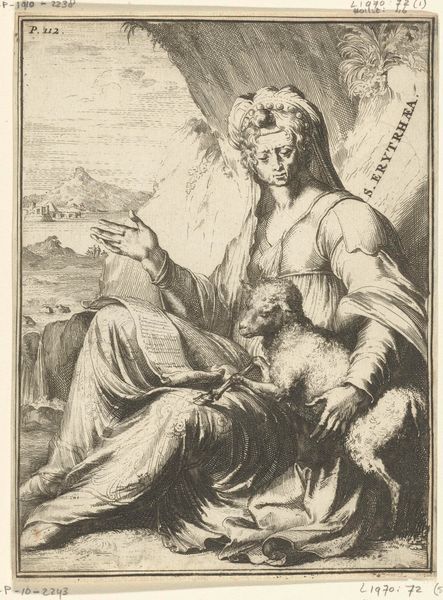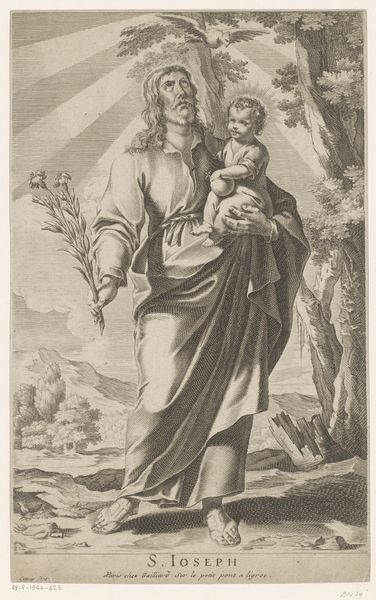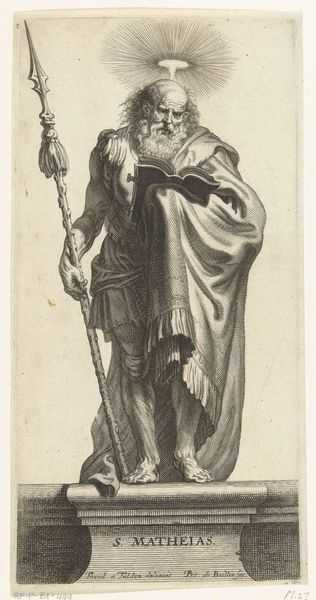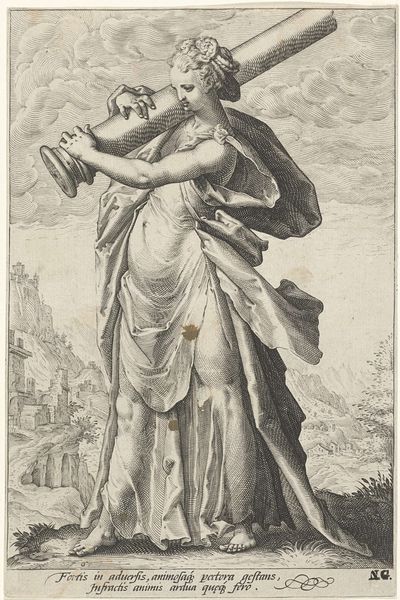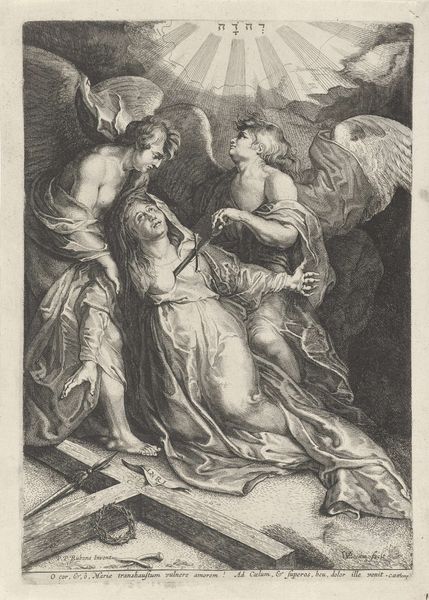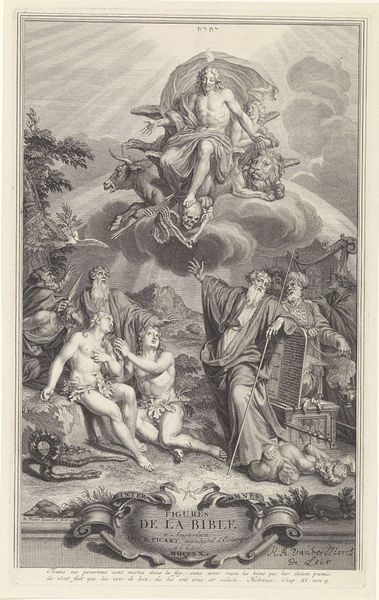
print, engraving
#
baroque
# print
#
figuration
#
history-painting
#
engraving
Dimensions: height 251 mm, width 136 mm
Copyright: Rijks Museum: Open Domain
Pieter de Bailliu created this engraving of Saint Joseph and the Christ Child. The artist used a metal plate, likely copper, into which he meticulously carved lines to create the image. The process is one of reduction, where the artist removes material to create a design. Consider the labor involved. Each line etched into the plate required careful planning and execution, demanding skill and patience. The varying depths and densities of the lines create a range of tones and textures. Look at the fine details in Joseph’s robe, the soft curls of the Christ Child’s hair, and the delicate petals of the lilies. These are the product of considerable expertise. Engravings like this one were often produced in multiples. They played a vital role in disseminating religious imagery across Europe. The print medium facilitated broader access to art, moving it beyond the realm of the wealthy. In this context, we can appreciate this engraving not just for its aesthetic value, but as a testament to the skill, labor, and social context of its creation. It challenges distinctions between fine art and craft.
Comments
No comments
Be the first to comment and join the conversation on the ultimate creative platform.
